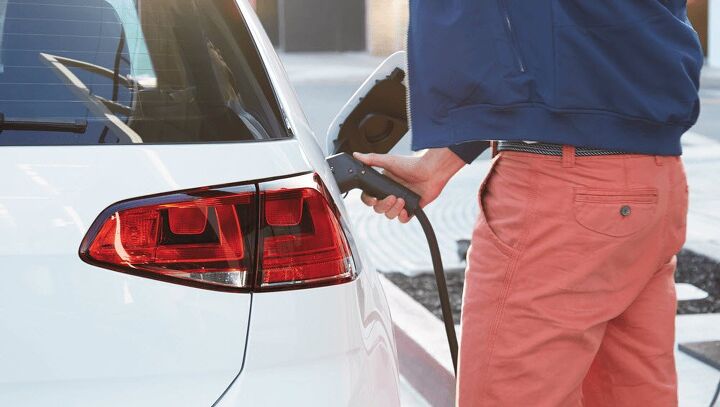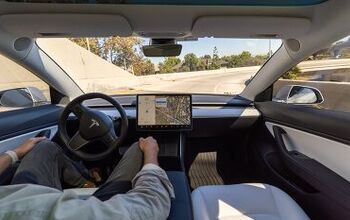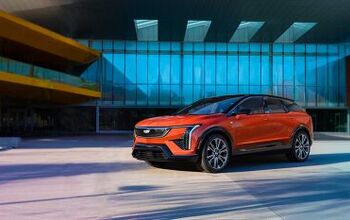Can an Electric Car Really Save You Money? It Depends on Where You Live

The automotive industry’s gradual shift toward electric vehicles is primarily influenced by global fuel economy mandates. A happy side effect is that consumers benefit from having access to vehicles offering better overall efficiency. This translates into lower running costs and some real savings — once EVs come down in price.
However, there are instances where it might still be cheaper to run a plain Jane internal combustion unit. A new study from the University of Michigan’s Sustainable Worldwide Transportation group explores exactly how cost-effective electric vehicles are and how fuel efficient an internal combustion model would need to be to become the cheaper alternative. The answer, as it turns out, has a lot to do with where you live.
For example, in a state where both gasoline and electricity are expensive, you might be better off sticking with a petroleum-based solution. Calculating the average annual miles driven by everyone in the United States, report authors Michael Sivak and Brandon Schoettle broke down the cost in each state to run both a BEV and a ICE vehicle for a year, based on current energy and fuel prices.
For Hawaii, they determined it would cost a driver $1,509 in gasoline and $1,106 in electricity to travel the same distance. However, that’s if the internal combustion model operated at the mean national efficiency rate of 25 mpg. The break-even point was 34.1 mpg, at which point the ICE would begin saving a motorist money. Considering there are already a bevy of budget-minded compact cars capable of achieving that, EVs may not be an ideal alternative for those residing in America’s 50th state.
In California, where fuel is expensive and electricity is cheaper, a gas-powered car needs to achieve 60.6 mpg or better in order to be cheaper to operate. In Michigan, where both gas and electricity are relatively affordable, the break-even point drops to 52.1 mpg.
On a national scale, the average annual fuel bill for an ICE vehicle comes in around $1,117, or just $485 for an electric. That means a gasoline-powered car needs to get 57.6 mpg or better to offset the cost benefit of driving a battery-powered vehicle. This is all contingent on prices staying the same, however. Were EVs to suddenly put excess strain on the energy grid, electricity prices could go up — lowering the break-even point. Likewise, higher fuel prices would have an inverse effect.
[Source: HybridCars] [Image: Volkswagen Group]

A staunch consumer advocate tracking industry trends and regulation. Before joining TTAC, Matt spent a decade working for marketing and research firms based in NYC. Clients included several of the world’s largest automakers, global tire brands, and aftermarket part suppliers. Dissatisfied with the corporate world and resentful of having to wear suits everyday, he pivoted to writing about cars. Since then, that man has become an ardent supporter of the right-to-repair movement, been interviewed on the auto industry by national radio broadcasts, driven more rental cars than anyone ever should, participated in amateur rallying events, and received the requisite minimum training as sanctioned by the SCCA. Handy with a wrench, Matt grew up surrounded by Detroit auto workers and managed to get a pizza delivery job before he was legally eligible. He later found himself driving box trucks through Manhattan, guaranteeing future sympathy for actual truckers. He continues to conduct research pertaining to the automotive sector as an independent contractor and has since moved back to his native Michigan, closer to where the cars are born. A contrarian, Matt claims to prefer understeer — stating that front and all-wheel drive vehicles cater best to his driving style.
More by Matt Posky
Latest Car Reviews
Read moreLatest Product Reviews
Read moreRecent Comments
- EBFlex Will I miss the Malibu? No. Will GM miss the Malibu? Absolutely. They are going from making a vehicle that makes money moving 150k a year and converting the plant to make EVs (that nobody wants) at a loss every year and far less volume. The amount of stupid that is always present when it comes to EVs is astounding. The experiment is over GM. Move on
- Mike Beranek In the sedan game, it's now either Camry or Accord. The rest are just background noise.
- Theflyersfan I know their quality score hovers in the Tata range, but of all of the Land Rovers out there, this is the one I'd buy in a nanosecond, if I was in the market for an $80,000 SUV. The looks grew on me when I saw them in person, and maybe it's like the Bronco where the image it presents is of the "you're on safari banging around the bush" look. Granted, 99% of these will never go on anything tougher than a gravel parking lot, but if you wanted to beat one up, it'll take it. Until the first warning light.
- Theflyersfan $125,000 for a special M4. Convinced this car exists solely for press fleets. Bound to be one of those cars that gets every YouTube reviewer, remaining car magazine writer, and car site frothing about it for 2-3 weeks, and then it fades into nothingness. But hopefully they make that color widespread, except on the 7-series. The 7-series doesn't deserve nice things until it looks better.
- Master Baiter I thought we wanted high oil prices to reduce consumption, to save the planet from climate change. Make up your minds, Democrats.


































Comments
Join the conversation
I remember doing some math about picking up a fleet-used 1st gen Volt, looking at the cost per mile. Cool thing was, at $0.10/kWh and $2.50-$3.00/gal, it cost the same to drive each mile that was purely electric as it did when it was purely gas. At an assumed 42mpg on the Volt, that was the crossover point with my electric rate in Houston, meaning any car that got more than that mileage on gas would have cost less to drive per mile.
Remember that 50 cents per gallon of gasoline is tax in the US (about 20% of the total price), and any serious expansion of the EV fleet will without any doubt lead to some sort of taxation on EV mileage whether it is an electricity tax or an actual tracking of mileage. Thus the EV fuel cost advantages will be at least 20% lower if EVs get a similar level of "fuel" taxation as ICVs. Since all EVs except the Tesla are small city cars, it is also unfair to make a comparison with a 25mpg ICV, when a fairer comparison would be with a 36 mpg Civic or Fit, which again would eliminate all or most of the fuel cost advantages. Many such comparisons also assume the use of the cheapest electricity such as off-peak rates and/or no use of fee for electricity charging points, when the reality is about 20% of EV recharging is not at home and probably more than that is during peak rate hours, and thus the more use of "expensive" electricity the smaller the saving. But as many commenters have already stated, even the most optimized EV fuel savings will be dwarfed by the much higher EV depreciation and in some case insurance costs, and higher purchase prices, and cost of fast home rechargers. Most "fair" comparisons put the payback period for EVs in comparison to comparable ICVs at beyond the average length of vehicle ownership (at best) to never.